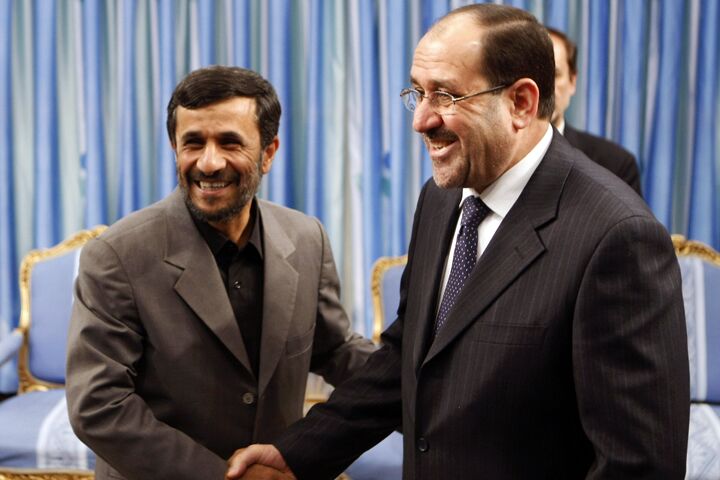
Baghdad Upgrades Relations With Iran
Iraqi Prime Minister Nouri al-Maliki made his fourth visit to Iran this week, where he met with Iranian President Mahmoud Ahmadinejad and other top leaders. During the visit, the leaders of both countries pledged closer cooperation, and Maliki promised that Iraq would not be used as a base for an attack on Iran.
Maliki even agreed with Iran’s position on Gaza, saying “the responsibility of Islamic and other countries of the world is not merely aiding Palestinians, but they also must prepare the ground to put the criminal [Israel] in his place.”
Maliki has copied Ahmadinejad’s anti-Israel stance, calling the Jewish state a “murderous regime, which continues its painful aggression against peaceful, unarmed civilians.”
“We believe Iran is Iraq’s great neighbor and also its best and most important partner in all fields of cooperation, and we hope the relations would reach the satisfactory level and volume,” said Maliki.
“The condition today requires Iraq to open the doors of friendship to neighboring countries, especially to Iran, since there are considerable mutual interests of Iraq and these states,” he also said.
Similarly, Iranian President Mahmoud Ahmadinejad said, “Our Islamic and humanitarian duty requires us to be incessantly by the side of Iraqi people.” He went on to say that “the two countries of Iran and Iraq can enhance their commercial ties in diverse areas at high speed.”
The Los Angeles Times reports that “Iran’s influence in Iraq has grown significantly since the 2003 U.S.-led invasion of Iraq, which toppled the Sunni-dominated government of President Saddam Hussein, a longtime foe of Shiite-run Iran.”
The two countries have reportedly signed 110 documents on cooperation in politics, economics, culture and commerce. Maliki told reporters that his visit to Iran resulted in the formation of a supreme joint committee and a follow-up committee for bilateral relations development. He also said it had been agreed that a services company with Iran would be formed to help rebuild Iraq after the country is completely stabilized.
Maliki promised on Iranian state television that Baghdad “will not let Iraq be a launching ground to threaten any country.” Abdul Hadi Husseini, a parliament member with Maliki’s Islamic Dawa Party, said the visit was intended in part to “make Iran more comfortable and to remove any fear that Iraq could be used as a base” by Western military forces.
Maliki also agreed to provide more facilities for Iranian pilgrims, release Iranian diplomats detained in Iraq, and prosecute Iranian resistance groups on Iraqi soil.
All this comes just days after American troops pulled out of the Green Zone in Baghdad. From now on, January 1—the date of the pullout—will be “Sovereignty Day,” a national holiday in Iraq.
Iran is the rising power in the region. But Persia cannot have the regional hegemony it desires without control of the fertile Mesopotamian valley. As America moves out, watch for Iran to cement its influence in Iraq. Iran has ambitions to become a great power, and it knows it needs Iraq to fulfill those ambitions. Iran has made much progress: Iraq already agrees with Tehran’s agenda in Israel.
For more information, see our article “When America Leaves Iraq ….”
